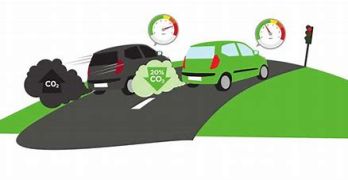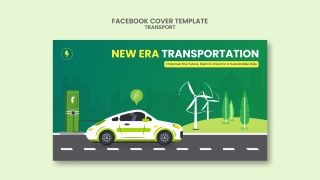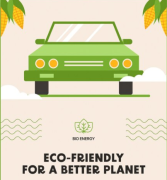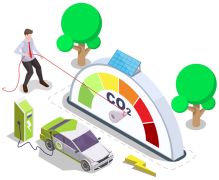Différences entre versions de « Ecodriving »
| (20 versions intermédiaires par le même utilisateur non affichées) | |||
| Ligne 68 : | Ligne 68 : | ||
<!-- Remplacez, Adaptez, Ajoutez ou Supprimez les images et lignes non utilisées--> | <!-- Remplacez, Adaptez, Ajoutez ou Supprimez les images et lignes non utilisées--> | ||
| − | Image: | + | Image:Ecodriving_at78.jpg|Ecodriving |
| − | Image: | + | Image:Ecodriving_sb78.jpg|New Era is coming |
| − | Image: | + | Image:Ecofriendly-sb78.PNG|ecofriendly leaflet |
| − | + | Image:Greenhouse-graphic-sb78.jpg|CO2 Effect | |
</gallery><!-- ************** Fin modification images***************************--> | </gallery><!-- ************** Fin modification images***************************--> | ||
<!-- ************************* Début modification Vidéo ******************************************************************--> | <!-- ************************* Début modification Vidéo ******************************************************************--> | ||
| Ligne 83 : | Ligne 83 : | ||
<youtube width="220" height="220">-5nrCoVzC9M</youtube> | <youtube width="220" height="220">-5nrCoVzC9M</youtube> | ||
<youtube width="220" height="220">9wgB0bkVrtQ</youtube> | <youtube width="220" height="220">9wgB0bkVrtQ</youtube> | ||
| − | <youtube width="220" height="220"> | + | <youtube width="220" height="220">osY6pBSLFb0</youtube> |
<!-- ************************* Début modification AutresMedias******************************************************************--> | <!-- ************************* Début modification AutresMedias******************************************************************--> | ||
| Ligne 151 : | Ligne 151 : | ||
<!-- Compléter les pointillés et Supprimer les lignes non utilisées --> | <!-- Compléter les pointillés et Supprimer les lignes non utilisées --> | ||
<!-- ****************** Commercez les modifications *********************** --> | <!-- ****************** Commercez les modifications *********************** --> | ||
| + | |||
| − | *'''[[ | + | *'''[[Individual transport]]''': Ecodriving mainly applies to private car drivers, encouraging behaviors such as smooth acceleration, maintaining a constant speed, and avoiding unnecessary deceleration to save fuel and reduce emissions. |
| − | *'''[[ | + | *'''[[Public transport]]''': Bus drivers and other public transport operators can incorporate ecodriving principles to reduce fuel consumption, minimize mechanical wear, and limit pollutant emissions, thereby improving the sustainability of transport networks. |
| − | *'''[[ | + | *'''[[Freight transport]]''': In logistics and road transport, companies adopt ecodriving to lower operating costs, particularly in long-distance transport, where energy efficiency gains translate into significant savings. |
| − | *'''[[ | + | *'''[[Corporate fleets]]''': Companies with vehicle fleets encourage their employees to practice ecodriving to reduce fuel and maintenance costs while lowering their carbon footprint. |
| − | *'''[[ | + | *'''[[Urban driving]]''': Ecodriving is applied in densely populated urban environments, where anticipating traffic flow and managing frequent stops can reduce fuel consumption and emissions under often inefficient conditions. |
| − | *'''[[ | + | *'''[[Motor sports]]''': Although focused on performance, motorsports can integrate ecodriving principles to improve engine efficiency, particularly in electric or hybrid vehicle competitions. |
| − | *'''[[ | + | *'''[[Driver training and education]]''': Driving schools and awareness campaigns use ecodriving as an educational tool to train new drivers in responsible and environmentally friendly practices. |
| − | *'''[[ | + | *'''[[Development of onboard technologies]]''': Automotive manufacturers integrate tools such as instant fuel consumption indicators, "eco" modes, or energy regeneration systems to help drivers apply ecodriving principles. |
| − | *'''[[ | + | *'''[[Government policies]]''': Governments encourage ecodriving through incentive programs, subsidies for training, or awareness campaigns aimed at achieving national environmental goals. |
| − | *'''[[ | + | *'''[[Air transport]]''': Although less known, ecodriving has an equivalent in aviation, where pilots adopt techniques to optimize fuel consumption, such as flying at an optimal altitude or reducing ground wait times. |
| − | *'''[[ | + | *'''[[Agricultural driving]]''': In agriculture, ecodriving can apply to using machinery such as tractors by optimizing settings and adopting techniques to reduce fuel consumption and operating costs. |
| − | *'''[[ | + | *'''[[Sustainable tourism]]''': As part of responsible tourism, vehicle rental companies or tour guides encourage ecodriving to limit the ecological impact of visitors' travel. |
}}<!--************** Fin Fiche Didactique Explicitations ******************* --> | }}<!--************** Fin Fiche Didactique Explicitations ******************* --> | ||
| + | = {{Widget:Errors-confusions-sheet}} = | ||
| − | |||
| − | |||
| − | |||
| − | |||
| − | |||
| − | |||
| − | |||
| − | |||
| − | |||
| − | |||
| − | |||
| − | |||
| − | |||
| − | |||
| − | |||
| − | |||
| − | |||
| − | |||
| − | |||
| − | |||
| − | |||
| − | |||
| − | |||
| − | <!-- ****************** Commercez les modifications *************************--> | + | <!-- ************ Début Fiche Didactique Conceptions ******************* --> |
| + | {{Fiche Didactique Conceptions <!----------------------------------------------> | ||
| + | <!-- Spécification des éventuelles Difficultés ou Confusions ou Erreurs ou Conceptions erronées --> | ||
| + | |Difficultés-Confusions-Erreurs-Conceptions= <!--------------------------------> | ||
| + | <!-- Compléter les pointillés et Supprimer les lignes non utilisées------------> | ||
| + | <!-- **************** Commercez les modifications *************************--> | ||
| − | {{@}} | + | {{@}} **Examples of Common Difficulties in Understanding or Interpretation**: |
| − | * | + | * **Confusion Between Ecology and Economy**: Learners might not grasp that eco-driving involves both reducing environmental impact and achieving financial savings. |
| − | * | + | * **Universal Application of Tips**: Assuming all eco-driving tips apply equally to all types of vehicles (electric, hybrid, or internal combustion engines). |
| − | * | + | * **Limited Impact of Individual Behavior**: Underestimating or overestimating the significance of individual driving behavior compared to other factors like vehicle maintenance or road infrastructure. |
| − | * | + | * **Misinterpretation of Performance Indicators**: Difficulty in understanding or interpreting metrics such as average fuel consumption, savings in liters, or CO2 emissions. |
| − | * | + | * **Lack of Practical Connection**: Believing that eco-driving can be limited to theoretical rules without requiring effort in daily driving practice. |
| − | {{@}} | + | {{@}} **Potential Confusions or Misinterpretations**: |
| − | * Confusion | + | * Confusion between **[[Ecology - Economy]]**: The use of the prefix "eco" might lead to focusing on one aspect (ecological or economical) while neglecting the other. |
| − | * Confusion | + | * Confusion between **[[Safe Driving - Eco-Driving]]**: Learners might think that safe driving automatically includes eco-driving principles, though some specific practices differ. |
| − | * Confusion | + | * Confusion between **[[Optimal Speed - Minimum Speed]]**: Believing that saving fuel always means driving slowly, whereas eco-driving recommends a steady, suitable, but not excessive speed. |
| − | * Confusion | + | * Confusion between **[[Immediate Efficiency - Long-Term Efficiency]]**: Thinking that all benefits of eco-driving (like reduced mechanical wear) are noticeable instantly. |
| − | {{@}} | + | {{@}} **Other Frequent Errors**: |
| − | * | + | * Believing eco-driving is unnecessary with modern or electric vehicles, although these vehicles also benefit from optimized driving. |
| − | * | + | * Applying eco-driving techniques without considering terrain or weather conditions, which can reduce effectiveness or increase risks. |
| − | * | + | * Failing to anticipate sufficiently, such as braking suddenly instead of releasing the accelerator when approaching an obstacle or red light. |
| − | * | + | * Confusing instant fuel consumption with average consumption, leading to misinterpretation of performance. |
| − | * | + | * Assuming idling is economical, whereas it wastes fuel unnecessarily. |
| + | * **[[Complexity of Underlying Physical Principles]]**: Explaining concepts like air resistance, inertia, or the impact of speed on fuel consumption might be challenging for those with limited physics knowledge. Simple analogies are crucial. | ||
| + | * **[[Errors About Real Impact]]**: Some might overestimate the environmental effects of eco-driving or underestimate other factors, such as vehicle design or road conditions. | ||
}}<!-- ************** Fin Fiche Didactique Conceptions ********************* --> | }}<!-- ************** Fin Fiche Didactique Conceptions ********************* --> | ||
Version actuelle datée du 26 décembre 2024 à 21:21
 Traduction
Traduction
Écodriving (Français) / Ecodriving (Anglais) / القيادة الاقتصادية (Arabe) / Conducción ecológica (Espagnol) / Condução ecológica (Portugais) / Экодрайвинг (Russe) / Guida ecologica (Italien) / Ökologisches Fahren (Allemand) / 生态驾驶 (Chinois (Mandarin)) / इकोड्राइविंग (Hindi) / エコドライビング (Japonais) / ইকোড্রাইভিং (Bengali).
}}
 Définition
Définition
Domaine, Discipline, Thématique
|Domaine-Discipline-Thématique-1 = Écologie |Domaine-Discipline-Thématique-2 = Physique |Domaine-Discipline-Thématique-3 = Mécanique |Domaine-Discipline-Thématique-4 = Psychologie |Domaine-Discipline-Thématique-5 = Sociologie |Domaine-Discipline-Thématique-6 = Économie |Domaine-Discipline-Thématique-7 = Génie mécanique |Domaine-Discipline-Thématique-8 = Informatique |Domaine-Discipline-Thématique-9 = Ingénierie des transports |Domaine-Discipline-Thématique-10 = Sciences de l’environnement
Définition écrite
- ......................................................................
....................................................................... ....................................................................... .......................................................................
- ......................................................................
.......................................................................
.......................................................................
....................................................................... ....................................................................... .......................................................................
....................................................................... ....................................................................... |
Définition graphique
- AUTRES MEDIAS
![]() Ecodriving (Discipline)
Ecodriving (Discipline)
![]() Ecodriving: (Discipline)
Ecodriving: (Discipline)
![]() Ecodriving: (Discipline)
Ecodriving: (Discipline)
![]() Ecodriving: (Discipline)
Ecodriving: (Discipline)
![]() Ecodriving: (Discipline)
Ecodriving: (Discipline)
![]() Ecodriving
Ecodriving
![]() Ecodriving
Ecodriving
![]() Représentation graphique spatiale Ecodriving: carte conceptuelle (cmap)
Représentation graphique spatiale Ecodriving: carte conceptuelle (cmap)
![]() Document PDF Ecodriving: Document PDF
Document PDF Ecodriving: Document PDF
![]() Image/Figure Ecodriving: Titre de l'image ou de la figure
Image/Figure Ecodriving: Titre de l'image ou de la figure
 Concepts ou notions associés
Concepts ou notions associés
Énergie / Consommation / Rendement / Aérodynamique / Friction / Inertie / Émissions / Pollution / Accélération / Freinage / Vitesse / Trajectoire / Éco-conduite / Durabilité / Environnement / Optimisation / Propulsion / Maintenance / Technologie / Résistance / Thermodynamique / Planification / Transport / Sécurité / Habitabilité /
 Exemples, applications, utilisations
Exemples, applications, utilisations
|
Widget:Errors-confusions-sheet
![]() **Examples of Common Difficulties in Understanding or Interpretation**:
**Examples of Common Difficulties in Understanding or Interpretation**:
- **Confusion Between Ecology and Economy**: Learners might not grasp that eco-driving involves both reducing environmental impact and achieving financial savings.
- **Universal Application of Tips**: Assuming all eco-driving tips apply equally to all types of vehicles (electric, hybrid, or internal combustion engines).
- **Limited Impact of Individual Behavior**: Underestimating or overestimating the significance of individual driving behavior compared to other factors like vehicle maintenance or road infrastructure.
- **Misinterpretation of Performance Indicators**: Difficulty in understanding or interpreting metrics such as average fuel consumption, savings in liters, or CO2 emissions.
- **Lack of Practical Connection**: Believing that eco-driving can be limited to theoretical rules without requiring effort in daily driving practice.
![]() **Potential Confusions or Misinterpretations**:
**Potential Confusions or Misinterpretations**:
- Confusion between **Ecology - Economy**: The use of the prefix "eco" might lead to focusing on one aspect (ecological or economical) while neglecting the other.
- Confusion between **Safe Driving - Eco-Driving**: Learners might think that safe driving automatically includes eco-driving principles, though some specific practices differ.
- Confusion between **Optimal Speed - Minimum Speed**: Believing that saving fuel always means driving slowly, whereas eco-driving recommends a steady, suitable, but not excessive speed.
- Confusion between **Immediate Efficiency - Long-Term Efficiency**: Thinking that all benefits of eco-driving (like reduced mechanical wear) are noticeable instantly.
- Believing eco-driving is unnecessary with modern or electric vehicles, although these vehicles also benefit from optimized driving.
- Applying eco-driving techniques without considering terrain or weather conditions, which can reduce effectiveness or increase risks.
- Failing to anticipate sufficiently, such as braking suddenly instead of releasing the accelerator when approaching an obstacle or red light.
- Confusing instant fuel consumption with average consumption, leading to misinterpretation of performance.
- Assuming idling is economical, whereas it wastes fuel unnecessarily.
- **Complexity of Underlying Physical Principles**: Explaining concepts like air resistance, inertia, or the impact of speed on fuel consumption might be challenging for those with limited physics knowledge. Simple analogies are crucial.
- **Errors About Real Impact**: Some might overestimate the environmental effects of eco-driving or underestimate other factors, such as vehicle design or road conditions.
 Questions possibles
Questions possibles
 Liaisons enseignements et programmes
Liaisons enseignements et programmes
Idées ou Réflexions liées à son enseignement
Education: Autres liens, sites ou portails
 Bibliographie
Bibliographie
Pour citer cette page: ([1])
ABROUGUI, M & al, 2024. Ecodriving. In Didaquest [en ligne]. <http:www.didaquest.org/wiki/Ecodriving>, consulté le 27, décembre, 2024
- ..................
- ..................
- ..................
- ..................
- Pages utilisant des arguments dupliqués dans les appels de modèle
- Sponsors Education
- Énergie
- Consommation
- Rendement
- Aérodynamique
- Friction
- Inertie
- Émissions
- Pollution
- Accélération
- Freinage
- Vitesse
- Trajectoire
- Éco-conduite
- Durabilité
- Environnement
- Optimisation
- Propulsion
- Maintenance
- Technologie
- Résistance
- Thermodynamique
- Planification
- Transport
- Sécurité
- Habitabilité
- Concepts
- Ecodriving
- Ecodriving (Concepts)
- Fiche conceptuelle didactique






